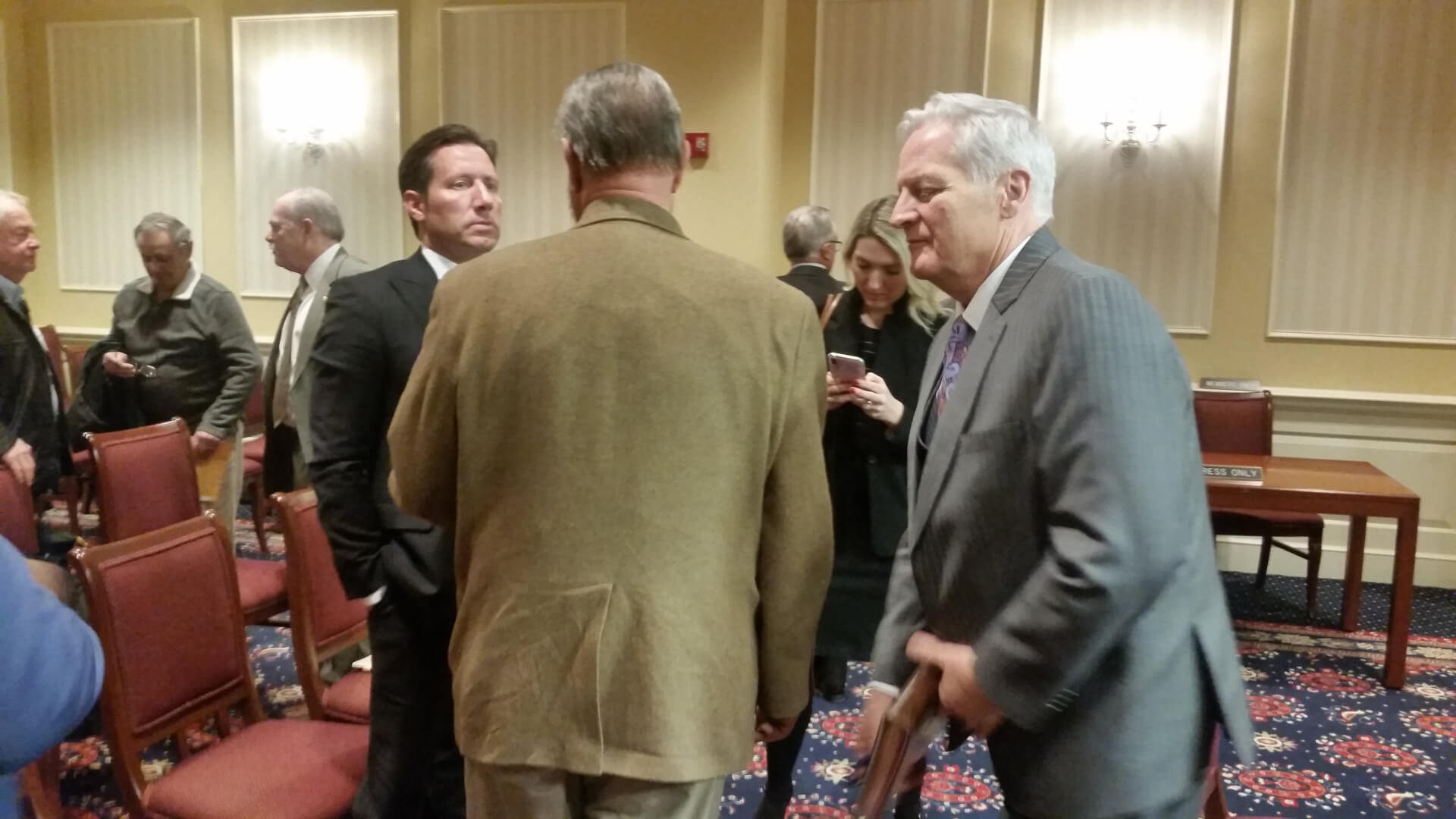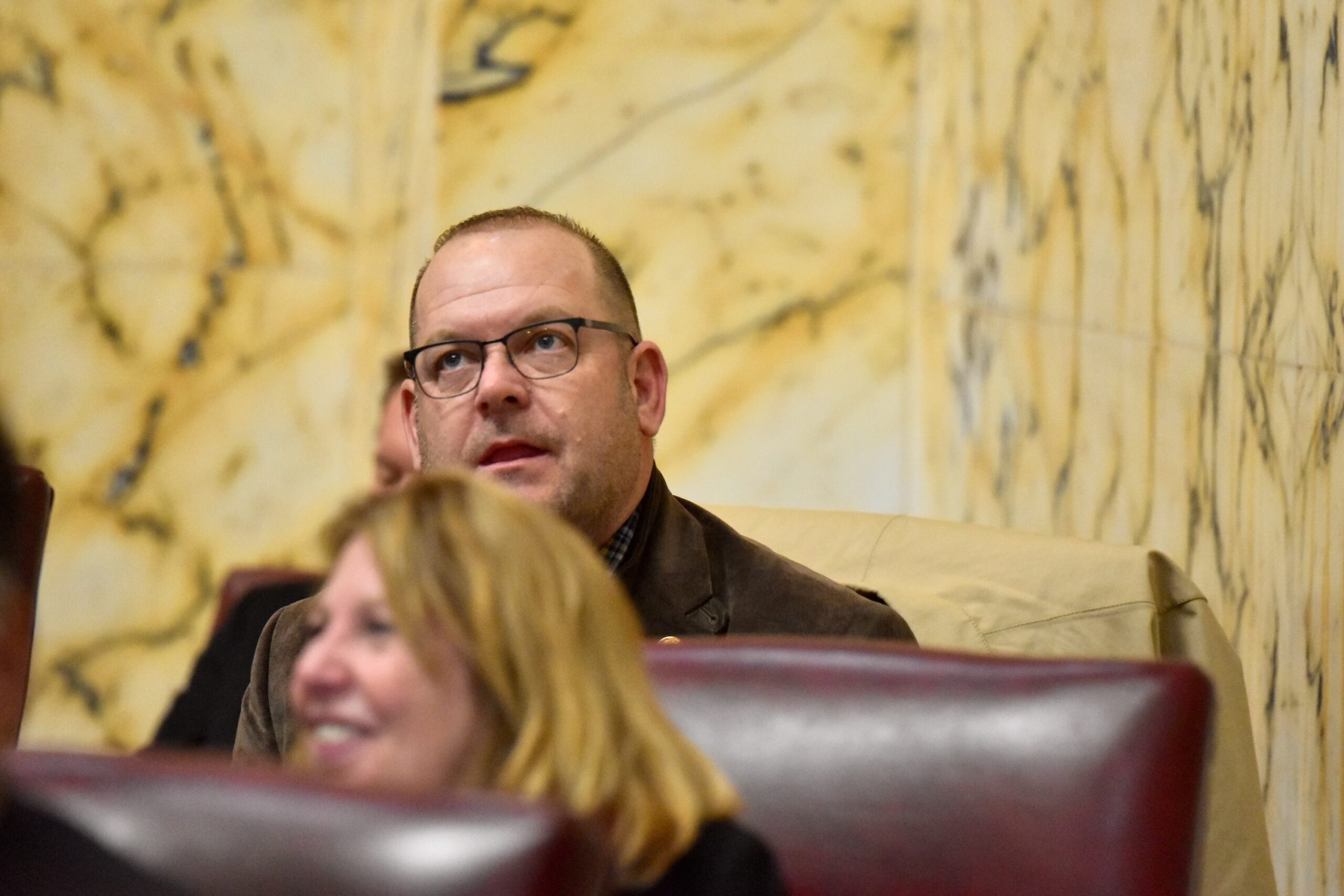In Session’s Final Days, an Angelos Asbestos Bill Emerges

The wheels of justice grind slowly, but sometimes legislation in the Maryland General Assembly moves at lightning speed. When the two phenomena collide, the result can be confusing and unsettling.
That’s what has quietly happened over the past few days in the state Senate, where the Judicial Proceedings Committee is moving a late-filed bill that would establish an Office of Asbestos Case Mediation and Resolution within the executive branch of state government. The idea behind the legislation is to make a dent in the backlog of more than 30,000 lawsuits against asbestos manufacturers in Maryland – some dating back to the 1980’s and 1990’s.
“The courts are unable to deal with this issue themselves, so it’s up to us to act,” the bill’s sponsor, Sen. Jeffrey D. Waldstreicher (D-Montgomery), told his colleagues during a committee hearing last week.
That sounds like a worthy goal – and hard to argue with. A lot of industrial and construction workers have gotten sick over the years due to their exposure to asbestos.
But in the State House, nothing is ever simple where the work of Peter G. Angelos is concerned.
Angelos is, of course, the Baltimore attorney and owner of the Baltimore Orioles who made his fortune representing ill workers who are suing asbestos manufacturers. Because the legislation now advancing in Annapolis would benefit Angelos’ clients – and by extension, his law firm – it has raised some eyebrows among lawmakers and lobbyists.
Angelos is a major donor to Democratic candidates, committees and causes, nationally and in Maryland. He has great influence among Democratic leaders, and his high-earning lobbyist, Gerard E. Evans, is one of the most wired in the State House.
The massive backlog in asbestos cases is nothing new, and has vexed policymakers, judicial officials and attorneys for decades. As far back as 1995, Angelos wrote to the state’s governor at the time, Parris N. Glendening (D), urging him to make clearing the backlog of cases – then totaling 11,000 – a priority of his new administration.
“On behalf of the clients represented by my law firm, I urge your immediate intervention to bring to an end the long-standing deprivation of their constitutional rights,” Angelos wrote to Glendening then.
In the intervening years, the courts have tried to address the problem – and the administrative judge of the Baltimore City Circuit Court is opposing Waldstreicher’s legislation.
The Circuit Court for Baltimore City now has an Asbestos Unit, which includes two active judges fully dedicated to asbestos cases, including conducting trials, conducting status conferences, and deciding motions; one senior judge who oversees the docket, directs the assignment of cases, and decides motions not within the purview of the two active judges; one full-time magistrate who has scheduling and administrative duties and conducts status and settlement conferences; four administrative assistants; and several clerical employees assigned to the asbestos docket.
“I believe we’re on the right road,” Judge W. Michael Pierson, the Circuit Court administrative judge, testified last week.
Ted Roberts, an attorney representing the defendants in the asbestos lawsuits, said Pierson’s plan is working “and ought to be given a chance to succeed.”
But advocates for the bill believe the court process is still moving too slowly, even though Pierson said his goal is to now clear 500 cases a month.
Not every case goes to trial; many are settled out of court and some lawsuits are dismissed or dropped.
“This system’s not working,” Gary J. Ignatowski, an attorney in Angelos’ firm, told senators last week. “This system is one-sided, it’s lopsided, and it’s not a system that works for both sides. But this [mediation] system will. I frankly don’t understand any opposition to it.”
Some senators were incredulous that so many cases could be allowed to accumulate without ready action.
“It’s mind-blowing that cases of this magnitude could linger around the courts for such a long time,” said Sen. Jill P. Carter (D-Baltimore City).
“I don’t like to use the word linger,” Ignatowski replied, “because so many of these people don’t linger.”
This is not the first time this legislative session that lawmakers have tried to address the backlog of asbestos cases. During budget deliberations in March, the House added an amendment that included a $500,000 restriction on the judiciary’s budget, which would have been released only for the compensation of recalled senior judges “to enhance the resources provided to reduce the backlog of asbestos–related cases in Baltimore City.”
But the Senate did not include a similar amendment in its spending plan, and the measure was eventually cast aside.
Waldstreicher’s bill was introduced a week ago and began moving quickly. But some senators said they were troubled by the legislation because they could not conceive of an agency in the legislative branch with quasi-judicial responsibilities (though a few in fact exist).
“I think there’s a separation of powers issue here,” said Sen. Christopher R. West (R-Baltimore County).
But by Friday night, the Judicial Proceedings Committee, after adding some amendments to Waldstreicher’s legislation, moved the bill unanimously. On Monday night, it came up for initial debate on the Senate floor.
“This is very intricate stuff that we’re trying to get our hands around,” said Judicial Proceedings Chair Robert A. Zirkin (D-Baltimore County).
On the floor, Sen. Edward R. Reilly (R-Anne Arundel) said he was concerned about the cost of the legislation and said he was drafting some amendments to the bill, which will be taken up again on the Senate floor Tuesday.
“The bill creates a different level of bureaucracy,” Reilly said in an interview. “It just seems like it creates an unnecessary step.”
There is no equivalent legislation in the House. House Judiciary Chair Luke V. Clippinger (D-Baltimore City) said Monday night he had yet to read the Senate bill but would do so soon and decide whether to prioritize the legislation in the final days of the session.
Danielle E. Gaines contributed to this report.




 Creative Commons Attribution
Creative Commons Attribution